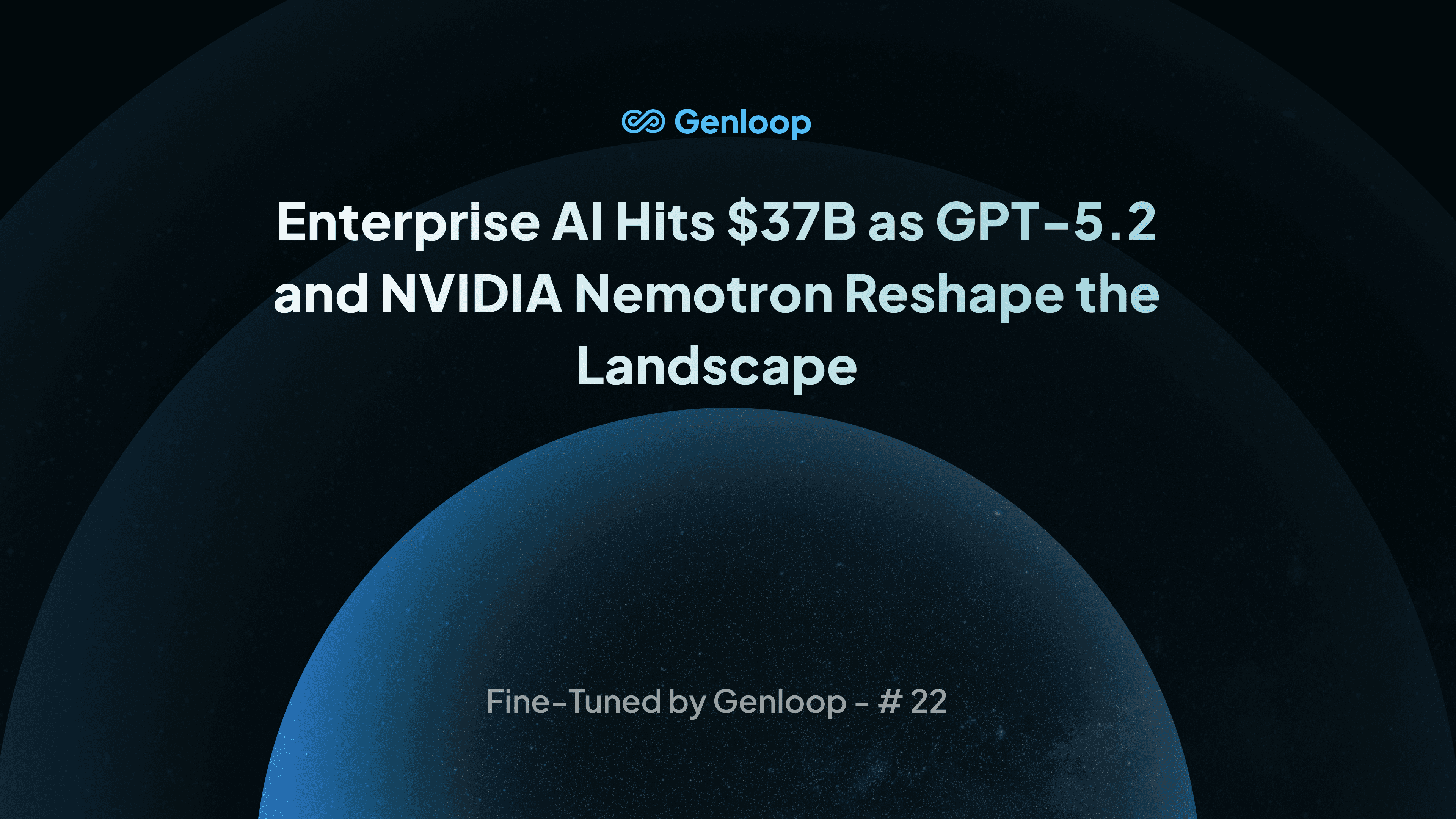Apr 30, 2025
Historically, the mainstream adoption of any transformative technology follows a predictable adoption curve — initial skepticism, conservative experimentation, and eventual normalization.

It happened with cloud infrastructure.
It happened with container orchestration.
And now, it’s happening with LLMs, specifically with customized LLMs.
Custom LLMs are open-weight models adapted for specific business domains and use cases by incorporating organizational knowledge. Through technologies like fine-tuning and continual pre-training, these models become personalized intelligence units that automate tasks, respecting business-specific semantics.
Despite its critical role in enterprise GenAI adoption, observers often say: "It's similar to cloud compute, enterprises will eventually be fine with OpenAI." However, this comparison misses the mark — not because it's wrong, but because it's incomplete.
While privately hosted custom LLMs share benefits with private compute infrastructure — namely, data control, security, and customization — the comparison breaks down when considering what LLMs actually represent: intelligence, not infrastructure.
Moving compute simply changes where processing happens — whether it's a local data center or a cloud provider, the underlying hardware behaves the same. In contrast, custom LLMs are not just about location; they are about behavioural alignment. This benefit persists even when hosting the customized LLM in the cloud.
A private custom LLM (private LLM for short) doesn't just "run safely." It thinks differently — adapting to an organization's unique tone, knowledge, and workflows. Like a GPS customized with organization-specific routes that delivers superior navigation, a customized LLM creates intelligence precisely tailored to business needs, rather than merely providing secure infrastructure.
How are private LLMs different than having private compute?
Traditional compute — whether cloud-native or on-prem — is stateless and deterministic. A CPU doesn’t change behavior based on where it runs; it simply executes instructions.
In contrast, private custom LLMs are state-aware probabilistic systems that behave based on context and business know-how. They aren’t just executing business logic — they’re generating output that mimics reasoning, tone, and even intent.

Consider two coffee shops with identical machines, beans, and pricing.
One simply takes the order and serves.
The other remembers preferences, adds a custom touch without being asked, and consistently delivers a better experience.
The latter earns loyalty — not because of superior hardware, but because of personalization.
In the world of private compute, there would be no real distinction between the two coffee shops — one might own the machine while the other rents it. But with LLMs, it's different: a general-purpose public LLM operates like the basic coffee shop, while a private custom LLM functions like the personalized one. Though they may use the same base model, the experience and output are vastly different.
What Makes Private LLMs Strategic
When trained on proprietary corpora and aligned with internal workflows, private custom LLMs deliver a semantic layer over structured and unstructured data — and that’s where the real differentiation kicks in.
Here’s what makes them strategic:

Contextual Precision: Models ingest domain-specific embeddings, enabling high semantic recall and relevance in responses.
Brand Consistency: Output style, verbosity, and tone can be shaped to match org-wide communication standards — no more vanilla completions.
Operational Efficiency: In-house or VPC model hosting offers direct control over inference latency, scaling, and costs while eliminating external rate limits and vendor constraints.
Data Privacy: Private LLMs keep sensitive data within controlled environments, reducing exposure risks and meeting GDPR, HIPAA, and internal security compliance requirements.
Risk Mitigation: With enterprise-grade guardrails, hallucination suppression, and integrated audit logging, risk is no longer a blocker.
Conclusion: Customization Over Commodity
Think beyond API wrappers and fancy UIs — LLMs are the beginning of embedded cognition in software architecture. When treated as a plug-and-play SaaS, they offer convenience. When integrated and domain-trained, they become competitive moats.
A public model may know the internet.
A private custom model knows your org — its tribal knowledge, docs, decisions, vocabulary, and quirks.
Two companies can start with the same base checkpoint.
One ships a surface-level interface.
The other builds a deeply aligned, guardrailed, memory-augmented copilot that acts like institutional memory in real time.
Both are technically “using LLMs.”
Only one is building differentiated intelligence.
And this is where Genloop comes in. It makes LLMs yours. Not just deployed. Not just functional. But strategically embedded.





